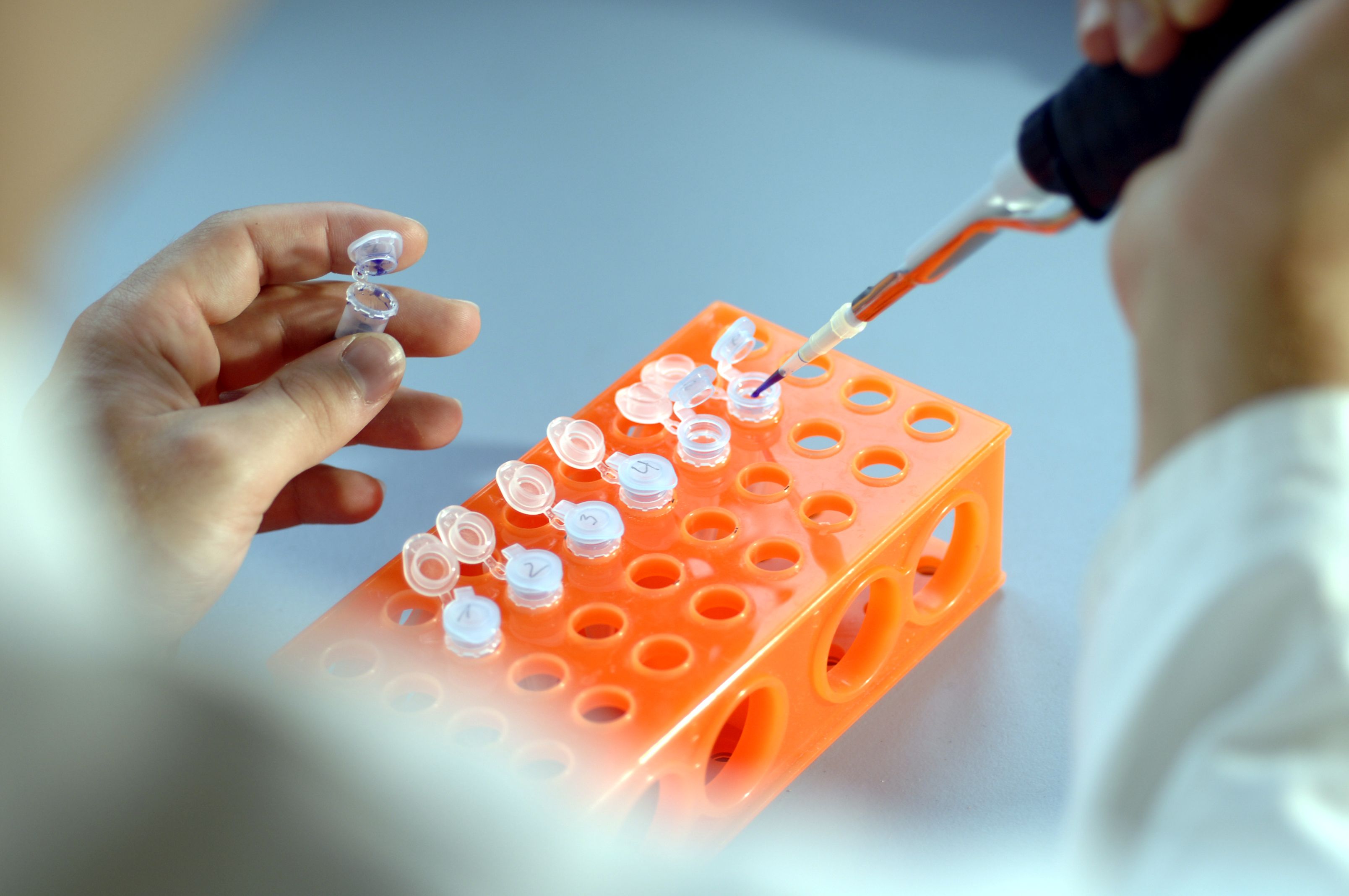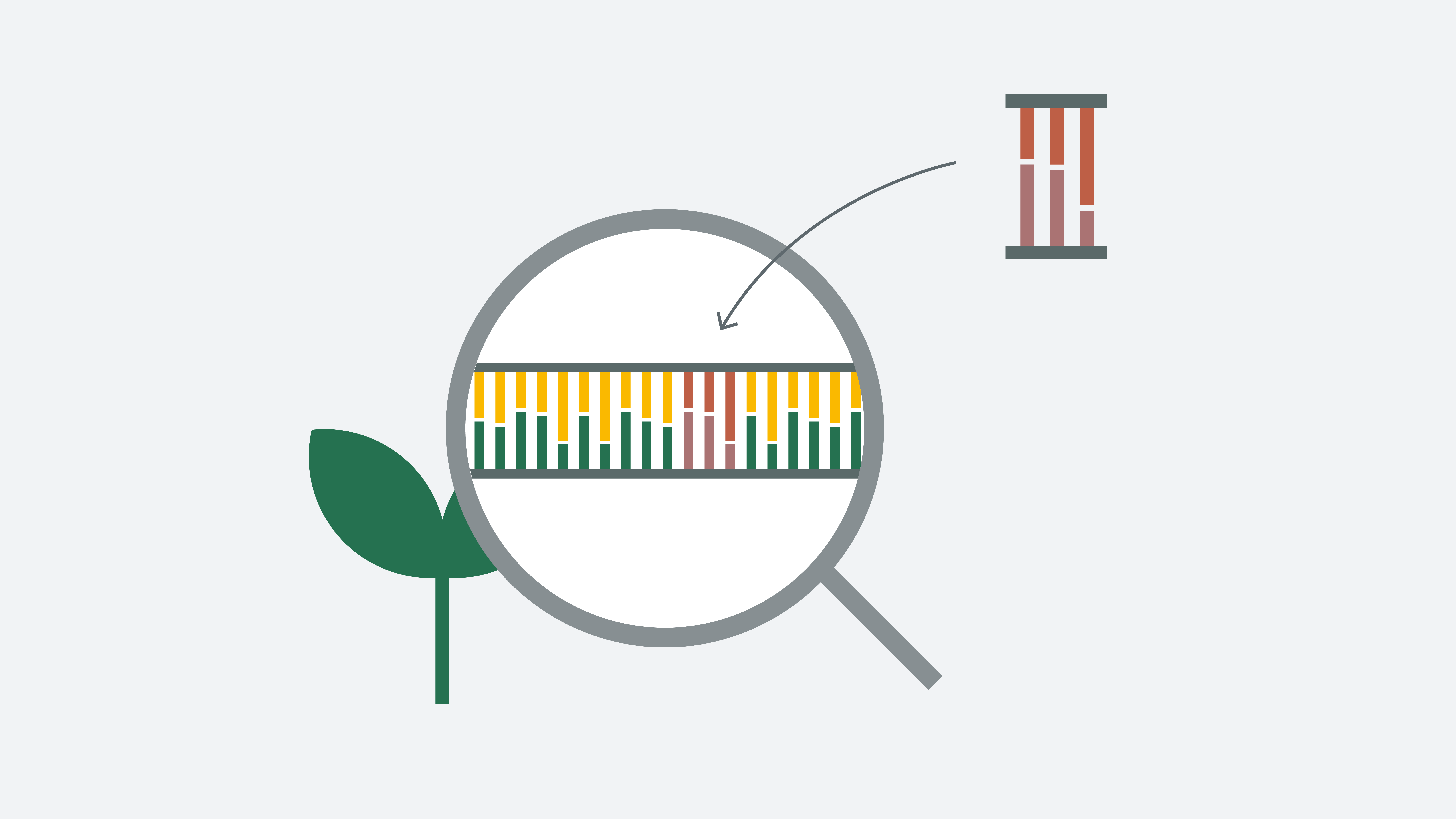Genetic Engineering
Overview
In a nutshell
Green genetic engineering is a highly targeted method to provide plants with new genetic properties. It involves transferring genes or other sections of the genetic material (DNA), for instance from bacteria, to the genetic material of plants.
Advantages
Genetic engineering methods enable a very targeted approach: Only the gene for the desired new characteristic is transferred directly to the crop.
Disadvantages
Critics view the transfer of genes from other species as a safety risk.
Development
This led to the development of genetic engineering, as researchers found enzymes in bacteria that cleave DNA in a precisely predetermined sequence. The first test application in viral genetic material around 1970.
Application at KWS
For example, to create genetically modified herbicide-resistant sugarbeets.
The principles of KWS when dealing with green genetic engineering
- We carry out an individual analysis, which must show that the potential benefits of a genetically modified plant are higher than currently available varieties. If this is not the case, we consider alternatives.
- We only perform field trials if all preliminary laboratory and greenhouse tests have shown that - according to the current state of knowledge - any damage can be ruled out.
- The entire process is fully transparent as we make this information publicly available in a timely and appropriate manner.
- We are in discussions with various stakeholders by taking part in discussion rounds or conferences or organising our own forums.
- As a family-friendly company, KWS stands for a careful approach to green genetic engineering to promote sustainable agriculture and maintain an enterprising balance between economy, ecology and social responsibility.
An overview of our breeding methods
Your contact


